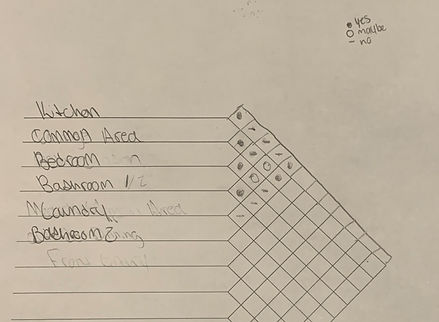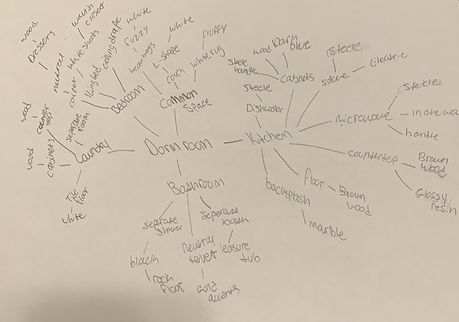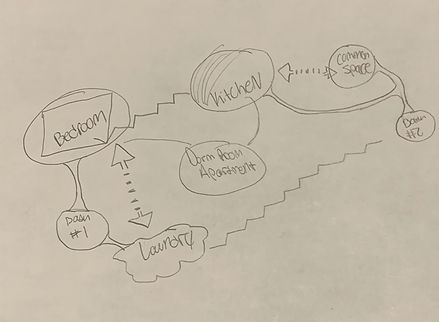
Interior Design I
The course emphasizes the importance of design elements like scale, proportion, and texture, and helps students develop a keen eye for detail. Through hands-on projects and assignments, students gain practical experience in creating design solutions for residential and commercial spaces.
Theory Applied to Interior Design
For this final project, the goal was to find an article and create a model that represented change theory, specifically how COVID-19 has influenced the way we design homes. The project highlighted how the need for functional, adaptable spaces has reshaped home design, blending nature with modern aesthetics to create healthier, more sustainable living environments.
Theory as an Experience

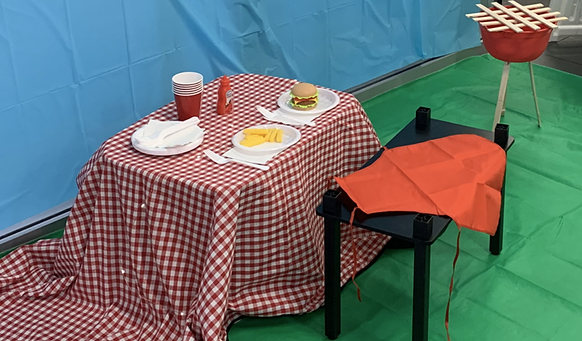
For this group project, we learned how to create an immersive experience by designing a fall cookout theme. By applying place theory we focused on evoking the warmth and atmosphere of the season. By carefully selecting colors, patterns and decor, we created an environment that reflected the inviting nature of a fall cookout. We contributed to a sense of connection helping people feel immersed in the experience and season.
Theory in Action
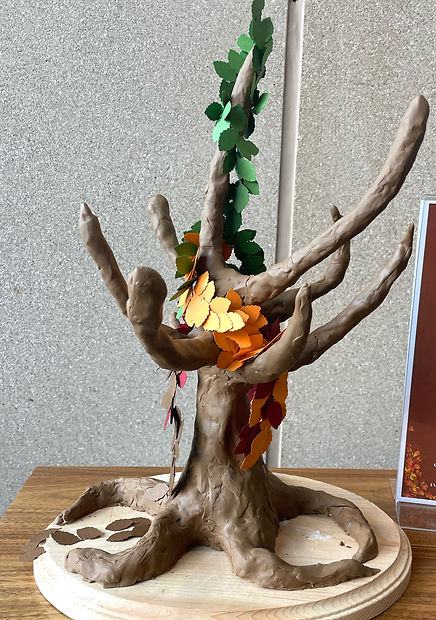

For this group project, we applied the Gestalt theory, specifically the law of continuation, to illustrate the transition of a tree's leaves changing colors—from green to yellow, to red, and finally to brown. By using this principle, we created a seamless flow of color that visually guided the viewer's eye through the natural progression of the leaf transformation, emphasizing how continuity in design can enhance visual perception and storytelling.
The Design Process
The design process serves as the cornerstone for all projects and assignments, not only in Interior Design 1 but across all FACS classes. It provides a structured approach that fosters creativity, critical thinking, and problem-solving skills, ensuring that each project is thoughtfully conceived and executed. By mastering the design process, students gain a solid foundation that supports their success in various disciplines within the FACS curriculum.
